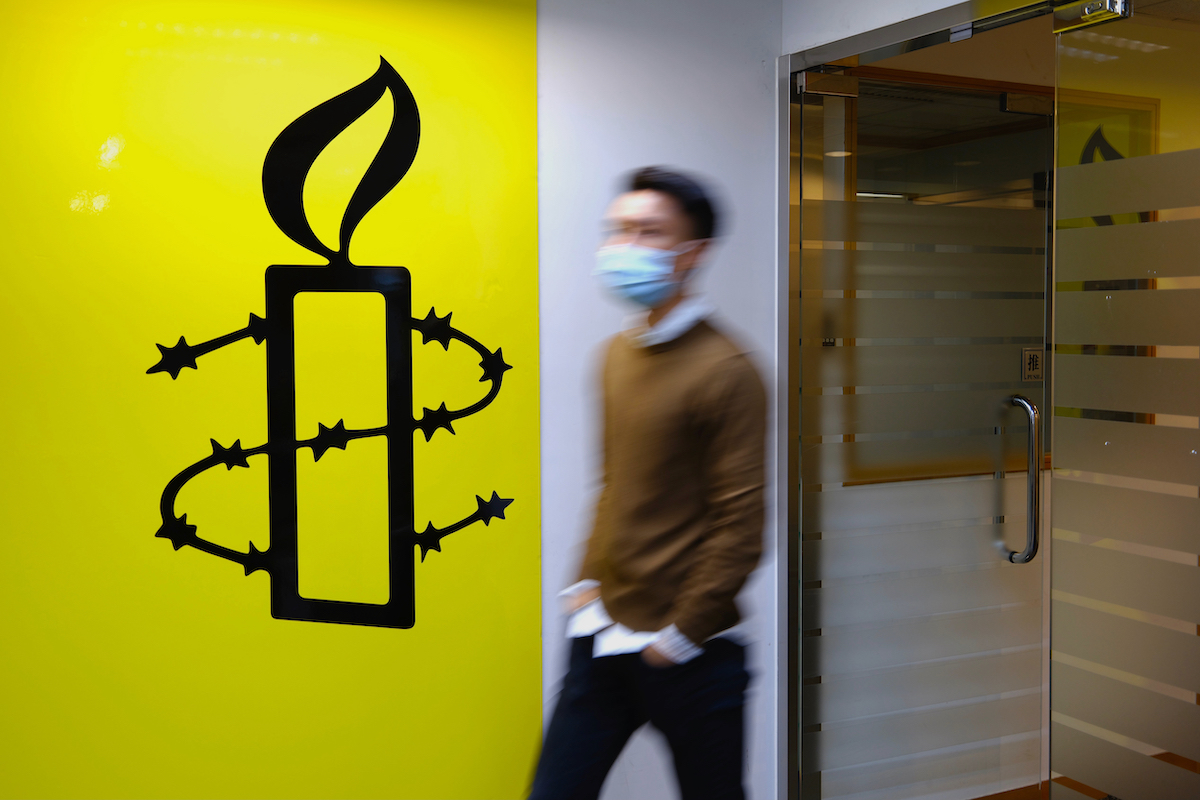London-based Amnesty International has succumbed to the pressures of Hong Kong’s wide-sweeping National Security Law (NSL), announcing on Oct. 25 its decisions to withdraw operations from the city.
The human rights organization will close its two Hong Kong branches, citing fear of “restrictions of freedoms of expression.”
The nongovernmental organization (NGO) said its branch that deals with human rights education programs in Hong Kong will close on Oct. 31, while another branch, which focuses on research and campaigning across East and Southeast Asia, will fold by the end of the year. The group also announced its decision to shift its Hong Kong advocacy to other parts of the Asia-Pacific region.
The NGO has played an ongoing role in influencing for the better the social and civil rights climate in Hong Kong. It was behind the push for full abolition of the death penalty in the city in the 1993 and unveiled police misconduct during the 2019 pro-democracy protests.
Amnesty International’s announcement marks one of the most prominent departures from Hong Kong, amid pressure from Beijing’s ever-restrictive crackdown on freedoms of speech, press, and assembly.
The NSL bans what the government deems as secession, terrorism, or subversion of Hong Kong’s prosperity. Violations of the law carry penalties up to and including life in prison. The strict legislation has been the grounds for more than 150 arrests since it was passed in June 2020.
Amnesty’s secretary general, Agnès Callamard, commented on the group’s withdrawal from Hong Kong in a tweet posted on Oct. 25:
#HongKong national security law has made it effectively impossible for human rights organizations in Hong Kong to work freely and without fear of serious reprisals from the government, including @amnesty. With a heavy heart, we are closing our offices. pic.twitter.com/MpVUxlAuWV
— Agnes Callamard (@AgnesCallamard) October 25, 2021
The NSL’s vague wording and broad application, paired with some of the world’s strictest COVID policies, has diminished the level of freedom Hong Kong citizens once enjoyed. The law is also widely unpopular within Hong Kong’s international business hub.
Critics of the NSL are hesitant to accept the idea that the law is beneficial to stability in Hong Kong.
Yet Hong Kong’s chief executive, Carrie Lam, has shown no concern over the legislation’s unpopularity. She has repeatedly lauded the law’s ability to restore stability and promote prosperity.
According to Bloomberg, “at least 35 other civil society groups have closed” in response to the same pressures from the NSL as faced Amnesty International. Last month, the group that organizes the annual vigil of the Tiananmen Square Massacre was forced to disband after its members either quit amid fear of the NSL or were arrested for violating it.
The tension in Hong Kong continues to climb as any action that qualifies as political dissent is censored and punished, nullifying freedom of expression.
Amnesty International’s decision to pull out of Hong Kong indicates that the NSL makes human rights difficult to promote and almost impossible to obtain. Human flourishing will cease if the Hong Kong government, out of fear of losing absolute control, continues to restrict citizens’ attempts to promote human rights.

